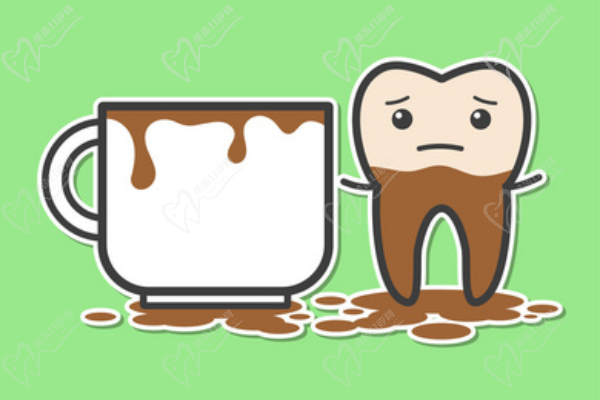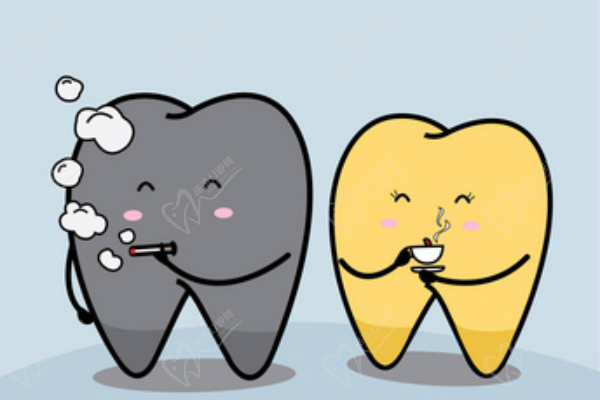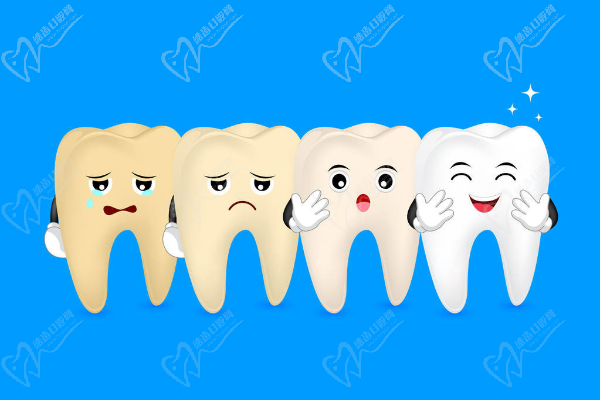Coffee is an essential part of modern work life, helping millions stay alert and focused throughout the day. While coffee offers various benefits like increased mental clarity and reduced stress, frequent coffee consumption can lead to dental issues, particularly tooth discoloration. Many coffee lovers ask the question: Does drinking too much coffee turn your teeth yellow? In this article, we’ll explore why coffee stains teeth and what you can do to prevent it.

Can Drinking Coffee Make Your Teeth Yellow?
The short answer is yes—drinking too much coffee can cause your teeth to turn yellow. Coffee contains tannins, which are deep brown compounds that tend to stick to the enamel of your teeth. Over time, these tannins build up, leading to staining. However, whether or not coffee turns your teeth yellow depends on how often you drink it and how well you take care of your oral hygiene.
If you drink coffee in moderation and maintain a consistent oral care routine, you may not experience significant discoloration. However, if you drink coffee frequently and neglect oral hygiene, the dark compounds in coffee can penetrate the enamel, causing your teeth to gradually yellow.
Why Does Coffee Stain Your Teeth?
Several components in coffee contribute to tooth discoloration, with tannins being the primary culprit. Tannins are water-soluble substances found in many plant-based foods and drinks, including tea, wine, and, of course, coffee. When tannins accumulate on your teeth, they can penetrate the outer layer of enamel, leading to yellow or brown stains.
In addition to tannins, coffee also contains chromogens—highly pigmented compounds that cling to your teeth. If coffee stains aren’t cleaned off, they may combine with bacteria to form plaque and tartar, which can lead to further oral health problems like cavities and gum disease. Therefore, it’s essential to maintain proper dental care to prevent lasting damage.

How to Prevent Coffee Stains on Your Teeth
If you can’t imagine a day without your morning cup of coffee but want to keep your teeth white, there are several ways you can minimize staining. Here’s how you can protect your teeth while enjoying your favorite beverage:
1. Brush Your Teeth Regularly
Brushing your teeth after drinking coffee is one of the most effective ways to prevent stains. By doing so, you remove the tannins and other staining agents before they have a chance to settle on your teeth. Use a fluoride toothpaste to strengthen your enamel and make it more resistant to discoloration. Make sure to brush gently, as aggressive brushing can wear down the enamel, making it more vulnerable to stains.
2. Rinse Your Mouth After Drinking Coffee
If brushing immediately after drinking coffee isn’t feasible, rinsing your mouth with water can also help. Swishing water around your mouth will wash away some of the coffee residues, preventing them from sticking to your teeth. This simple habit can make a noticeable difference over time and help prevent plaque buildup.
3. Get Regular Professional Cleanings
Even with diligent brushing and rinsing, some coffee stains will inevitably remain. Regular dental cleanings can remove these stubborn stains and keep your teeth healthy. Dentists use professional tools to scrape away tartar and polish the enamel, leaving your teeth whiter and healthier. It’s generally recommended to get a professional cleaning every six months.
4. Use Dental Floss
Flossing is crucial for maintaining overall oral health, especially for frequent coffee drinkers. Coffee residues and staining agents can get trapped between your teeth, which can lead to discoloration over time. Using dental floss helps remove plaque and food particles that brushing alone might miss. Incorporating flossing into your daily routine will not only improve your oral health but also keep your teeth looking whiter.
5. Opt for Whitening Toothpaste
Whitening toothpaste can help minimize surface stains caused by coffee. These toothpastes are specially formulated with mild abrasives that help scrub away discoloration. Over-the-counter whitening toothpaste options can be effective, but for more severe staining, a professional-strength product prescribed by your dentist might be necessary.

Coffee Alternatives to Prevent Stains
If you’re looking to reduce coffee-related stains but still need your caffeine fix, there are some alternatives to consider. Choosing lighter roasts, switching to decaffeinated coffee, or opting for tea—especially white or green tea—can reduce the risk of staining. While these options still contain tannins, they are present in much lower concentrations than in dark-roast coffee, resulting in less potential for tooth discoloration.
What to Do if Your Teeth Are Already Stained
If your teeth have already started to yellow due to coffee consumption, don’t worry—there are several solutions to restore your smile. Here are a few methods to help whiten your teeth and remove stains:
1. Teeth Whitening Treatments
Professional teeth whitening treatments are highly effective at removing deep stains caused by coffee. These treatments are typically performed in-office by a dentist, but there are also take-home kits available. Whitening treatments use peroxide-based agents to break down stains, restoring your teeth to their natural color.
2. Home Remedies for Whitening
There are several home remedies that may help reduce the appearance of coffee stains on your teeth. One popular option is baking soda. Brushing with a mixture of baking soda and water can help remove surface stains. However, it’s important to use this method sparingly, as excessive use can erode your enamel.
3. Routine Dental Cleanings
In some cases, regular dental cleanings may be enough to remove coffee stains, especially if they haven’t yet penetrated deep into the enamel. Routine cleanings will help eliminate tartar and plaque buildup, which can make your teeth look discolored. Regular checkups will also allow your dentist to monitor your oral health and recommend additional whitening options if needed.
Conclusion: Enjoy Coffee Without Compromising Your Smile
While coffee can stain your teeth, you don’t have to give it up completely to maintain a bright smile. By practicing good oral hygiene and following preventative measures like brushing, flossing, and rinsing your mouth, you can minimize the effects of coffee on your teeth. Regular dental visits and professional cleanings will also help maintain your oral health and keep your teeth looking white.
In summary, moderation is key. Enjoy your coffee, but take the necessary steps to protect your teeth from unwanted discoloration. A healthy smile and your favorite cup of coffee can coexist with the right care.
